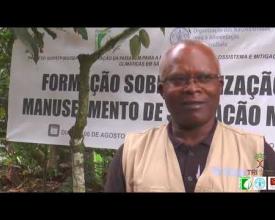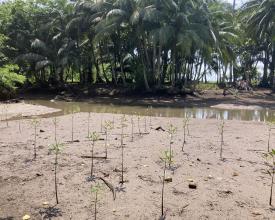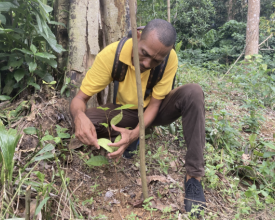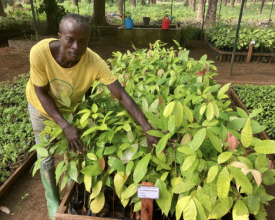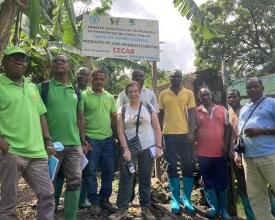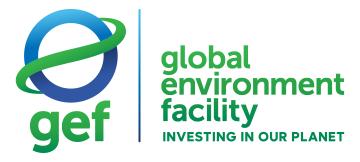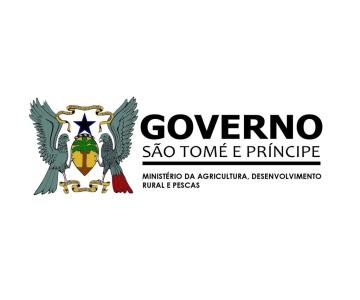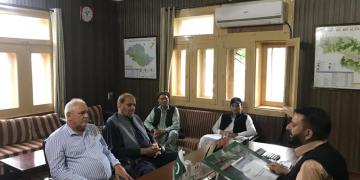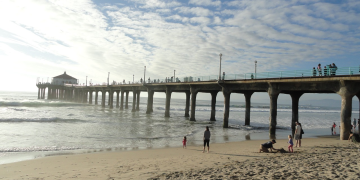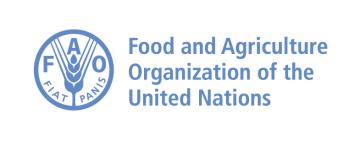
Enhancing National Commitment to FLR and Establishing a Conducive Policy Framework for Restoration and Sustainable Forest Management in Sao Tome and Principe
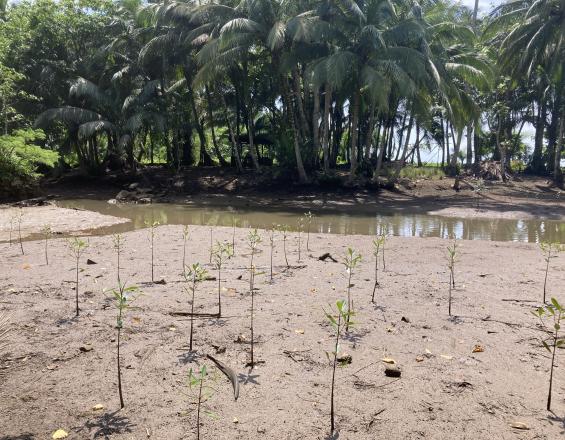
The Restoration Initiative (TRI) in Sao Tome and Principe is helping enhance national commitment to forest and landscape restoration (FLR) and improve and develop a policy framework supportive of conservation, restoration, and sustainable management of the country’s forests and coastal ecosystems. To do this, TRI Sao Tome and Principe created the National Platform for Forest and Landscape Restoration, which supports and steers FLR work and includes all major FLR stakeholders in the country. TRI also worked with the Directorate of Forests and Biodiversity to elaborate a Forest Landscape Plan to inform and guide sustainable forest management and restoration. Additionally, TRI supported the drafting of a policy influence plan as part of work to develop a blueprint for FLR policy improvement that includes policy review and helped the convening of a working group meant to improve existing policies and adopt new laws, regulations, and incentives.
TRI is a GEF-funded project.
Contexto
Défis à relever
The major challenges faced by TRI Sao Tome and Principe in pursuing its policy goals included slow dialogues between institutions, stalemates due to political transitions, lack of senior experts, and a lack of capacity. The TRI team needed to push policies through difficult dialogues between concerned institutions to ensure each actor was adequately satisfied with the final policies as well as promote them during elections and changes of institutional counterparts to prevent the policies from being sidelined with new leadership. Similarly, TRI Sao Tome and Principe needed to provide input and feedback to overcome any lack of senior experts who were able to lead and support policy processes and to help fill gaps in capacity and staff to allow the completion of policy processes.
Ubicación
Procesar
Summary of the process
By creating a National Platform for Forest and Landscape Restoration that supports and steers FLR work, developing a Forest Landscape Plan that is support by subnational FLR plans, and elaborating a policy influence plan that identifies policies gaps and recommendations, TRI Sao Tome has enhanced national commitment to FLR and improved the country’s policy and regulatory frameworks. In addition to validating the national and subnational FLR plans and the policy influence plan, the national platform also provided technical input and recommendations. This ensured the elaboration process was inclusive of all major stakeholders and included input from relevant experts.
Building Blocks
Creating an Operational National Platform for Forest Landscape Restoration to Support and Steer FLR
TRI’s Sao Tome and Principe project established a National Platform for Forest Landscape Restoration in 2019 to support FLR work that includes concerned institutions, private sector actors, civil society groups, local communities, and partner projects. The platform was officially launched in 2020 by ministerial decree with four thematic sub-groups the PFLR operates in. Meetings have continuously been held for the validation of reports and assessments. This includes those produced by national consultants such as the Policy Influence Plan and National Capacity Assessment and Community Plan and by the Directorate of Forests and Biodiversity (DFB) such as the National FLR Plan and the four FLR Landscape Plans in Sao-Tome North, Sao-Tome Center, Sao-Tome South, and Principe. These plans were shared with the PFLR with workshops organized during the National Forest in March 2021, where input of members was used to identify gaps, introduce recommendations, and define future priorities like upscaling institutional recognition for the PFLR through a governmental decree and harmonizing its TOR with other existing platforms.
Enabling factors
The National Platform for Forest Landscape Restoration would not have been possible without the willingness and enthusiasm of participating stakeholders to share their expertise and priorities. With stakeholders actively participating in the platform, policies are better elaborated with recommendations and technical input and more easily validated and elaborated. The platform’s sub-groups also allow members to focus on specific themes and better use their expertise to provide input.
Lesson learned
Through the establishment of the National Platform for Forest Landscape Restoration and convening of regular meetings, TRI has learned lessons around how stakeholders work together to discuss FLR policies and priorities and how to best use the technical knowledge of members to strengthen national and county plans. Through the process of meeting and validating reports and assessments, the platform has provided information around what members’ goals are regarding FLR and what recommendations they believe will support FLR in the country. Additionally, by working to convene meetings of the platform, TRI learned how to better organize meetings and at what rate meetings should be held to best use the platform to elaborate and validate policies. As time goes on and more meetings are held, the platform will continue to run more smoothly and better facilitate the policy process in Sao Tome and Principe.
Empowering the Production of the National Forest and Landscape Restoration Plan to Inform and Guide Forest Management, Conservation, and Restoration Initiatives
In 2020, a team of Directorate of Forests and Biodiversity staff began working to elaborate the Forest Landscape Plan with the technical assistance of the TRI team. The plan, delivered in May 2021, integrated comments and suggestions from validation workshops that consulted over 1,000 people from almost 100 communities across the country. The comprehensive plan includes four main chapters – context, objectives, methodology, and identification of restoration opportunities – that will guide and inform future forest management, conservation, and restoration initiatives in Sao Tome and Principe. Additionally, TRI facilitated the production of Four FLR Landscape plans that will operationalize the FLR interventions included in the national Forest Landscape Plan by outlining an implementation strategy. This includes landscape plans in Sao Tome North, Sao Tome Center, Sao Tome South, and Principe, which were finalized in 2023 and now guide the field restoration work of TRI in terms of priority locations and interventions. Together, the FLR landscape plans and the national Forest Landscape Plan outline the country’s FLR work over the next decade.
Enabling factors
Without the consultation of local communities and stakeholders through workshops, the FLR plans would have been developed with significant gaps and failed to consider the priorities of local communities. Additionally, the development of the four FLR Landscape Plans enables the more efficient implementation of the National Forest Landscape Plan as they operationalize the FLR interventions included in the plan.
Lesson learned
The elaboration of the national Forest Landscape Plan, as well as the accompanying four FLR Landscape Plans, brought TRI many lessons, including the priorities of local communities for FLR-based policies and how subnational and national policies can work together to successfully implement FLR and sustainable forest management actions over the next decade. By consulting members of communities across the country, TRI learned what individuals want to be included in the FLR plans and which activities would be best for the project’s goals. Additionally, through the elaboration of the national Forest Landscape Plan and the four subnational FLR Landscape Plans, the project also learned how different levels of policy can be elaborated in such a way as to implement and operationalize forest restoration and conservation.
Producing FLR Policy Improvement Recommendations Based on Gap Analysis of FLR Policies, Laws, and Regulations
TRI worked to produce recommendations on improving FLR policies based on a gap analysis of existing policies, laws, and regulations on forest management, conservation, and FLR in Sao Tome and Principe. These recommendations were based on a Policy Influence Plan (PIP) drafted by a national consultant in early 2021 and validated by the National Platform for Forest Landscape Restoration in March 2021. The final PIP included three policy objectives and related intermediate results and has since acted as the basis of the project’s policy work. The objectives included the improvement and modification of the inter-institutional collaboration and integration of the National Environmental Council, National Committee on Climate Change, and National Tendering Platforms, the amendment and harmonization of forest and conservation laws, and the update and improvement of the Forest Fund and 2018 Forest Management Plan. The PIP also reviewed previous FLR policies and created the included recommendations to help fill any identified gaps.
Enabling factors
The PIP was drafted with the technical assistance of the TRI Global Learning, Financing, and Partnerships project (GCP) specialist from the IUCN, helping to ensure the document was robust exploration FLR policies in Sao Tome. The National Platform for Forest Landscape Restoration also aided the development of the PIP by working to validate the document and make sure it created a good base for the project’s policy work.
Lesson learned
The PIP provided TRI and the Directorate of Forests and Biodiversity lessons on what gaps existed in Sao Tome and Principe’s FLR policies and what objectives those developing FLR policies should pursue. The PIP also provided recommendations and information on what results to monitor. As the basis of the rest of the project’s policy work, the knowledge of objectives, results, recommendations, and policy review examined by the PIP will ensure policy outcomes adequately address the country’s forest management, conservation, and FLR needs.
Impacts
TRI Sao Tome and Principe has resulted in multiple policy milestones, including the establishment of the National Platform for Forest and Landscape Restoration, the elaboration of the Forest Landscape Plan, and the creation of the Policy Influence Plan (PIP). All these milestones work to improve the country’s policy and regulatory frameworks to be more conducive to conservation, restoration, and sustainable forest management, contribute to a major difference from previous practice, and mark a significant step towards the project’s final goals. The National Platform for Forest and Landscape Restoration created a new space for the various stakeholders in Sao Tome to support and discuss FLR, while the National FLR Plan will guide the country’s FLR activities, putting FLR at the forefront of policy for the first time. With a new platform and national strategy, TRI’s milestones contribute to a prioritization of FLR that did not exist before. Additionally, with the National FLR Plan and platform, TRI is making significant progress towards the final goals of the program. By implementing FLR actions and allowing stakeholders to continually discuss FLR, restoration in Sao Tome will increase, helping the country reach its restoration commitments.
Beneficiaries
The beneficiaries are local communities, which benefit from policies that enhance restoration activities, work to protect forests and promote sustainable forest management. They will ensure the forests remain productive while protected.
Sustainable Development Goals
Story
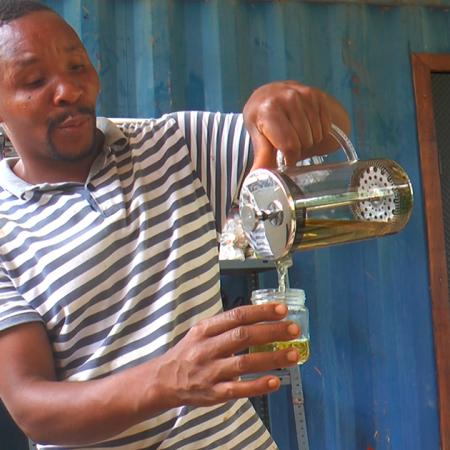
The Restoration Initiative (TRI) project in Sao Tome and Principe’s investments are helping to boost a responsible economy based on the restoration, conservation and sustainable management of forest landscapes and farmlands.
António Camuenha Alberto, an ecoguide and friend of biodiversity, has been living in the project community in São Tome and Principe for more than ten years and has taken some time to speak to our team.
"We have 1.5 hectares of land where we have developed our business activity for more than a year. Our business, BioTech, is developed around traditional medicine: we work with medicinal plants, making various products, remedies and aromatic teas. Our main objective is to highlight the richness of our Obô natural park, the buffer zones and the secondary forest where we get out ingredients", he explained.
After having met his partner and having taken part in various eco-guiding courses, BioTech was created to conserve and value our biodiversity and make use of forest products in a sustainable manner. The BioTech project has benefited from TRI/STP funding to support bankable projects. António and his partner grabbed this opportunity to boost their business.
"The funding we received helped us take a firmer step. With this support we were able to make a transformation centre, seal all our land, make an esplanade and plant several aromatic tea species such as gemgibre, humming, pepper, and cinnamon. We also have medicinal plants such as stick three, cubango and more, " said the entrepreneur.
In addition to the remedies and aromatic teas, BioTech also produces leaves for bathing and dreams of building a spa. “It will be a kind of "massage workshop" where people can come, see the production, have a tea, receive a massage, take a bath of medicinal plants and leaves and come to our store and buy the teas and other products that are well packed with the proper explanations," Antonio said.
António further explained "The project arrived at the right time for us and allowed us to go further. It is contributing and I am sure it will contribute more to our economy. I thank the project for the support it has given not only to us but to other entrepreneurs. I take the opportunity to encourage other companies and entrepreneurs to pursue TRI/STP opportunities.”

